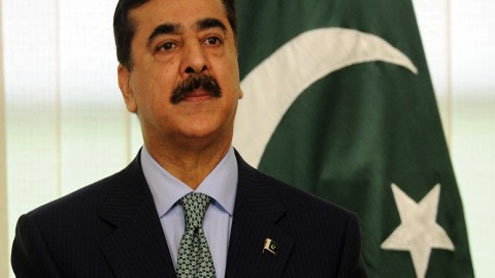 Human rights groups have urged the Haitian government to arrest and prosecute former President Jean-Claude Duvalier for abuses committed during his 1971-86 leadership. Mr Duvalier, 59, also known as “Baby Doc”, has just returned to Haiti. He said he had “come to help” after last year’s earthquake, but Human Rights Watch and Amnesty International said he should face justice. It is not clear whether any warrants exist for his arrest. Mr Duvalier was just 19 when he inherited the title of “president-for-life” from his father, the notorious Francois “Papa Doc” Duvalier, who had ruled Haiti since 1957. Baby Doc is accused of massive corruption, repression and human rights abuses during his 1971-1986 rule. Critics allege he embezzled millions of dollars from the impoverished Caribbean nation, a charge he denies. Like his father, he relied on a brutal private militia known as the “Tontons Macoutes”, which controlled Haiti through violence and intimidation.
Human rights groups have urged the Haitian government to arrest and prosecute former President Jean-Claude Duvalier for abuses committed during his 1971-86 leadership. Mr Duvalier, 59, also known as “Baby Doc”, has just returned to Haiti. He said he had “come to help” after last year’s earthquake, but Human Rights Watch and Amnesty International said he should face justice. It is not clear whether any warrants exist for his arrest. Mr Duvalier was just 19 when he inherited the title of “president-for-life” from his father, the notorious Francois “Papa Doc” Duvalier, who had ruled Haiti since 1957. Baby Doc is accused of massive corruption, repression and human rights abuses during his 1971-1986 rule. Critics allege he embezzled millions of dollars from the impoverished Caribbean nation, a charge he denies. Like his father, he relied on a brutal private militia known as the “Tontons Macoutes”, which controlled Haiti through violence and intimidation.
Human Rights Watch Americas director Jose Miguel Vivanco said Haiti had enough problems without Mr Duvalier. “Duvalier’s return to Haiti should be for one purpose only – to face justice,” he said in a statement. “His time to be held accountable is long overdue. “Duvalier’s presence – unless he is immediately arrested – is a slap in the face to a people who have already suffered so much.” Amnesty special adviser Javier Zuniga said Mr Duvalier’s abuses amounted to crimes against humanity and Haiti was “under obligation” to prosecute him. And US state department spokesman PJ Crowley said in a Twitter message: “It adds unpredictability at an uncertain time in Haiti’s election process.” But Prime Minister Jean-Max Bellerive said Mr Duvalier was free to return home, adding that there was no reason to believe he would destabilise a country that is facing uncertainty after disputed presidential elections.
The reason for his visit is not clear, although a French diplomatic source told the BBC that Mr Duvalier had a return ticket to France for 20 January. He is staying in a hotel in the hills above the centre of the capital, Port-au-Prince. UN police have been guarding the hotel’s entrance. His return to Haiti came on the day it was supposed to hold the second round of elections to choose a successor to outgoing President Rene Preval. But the vote has been postponed because of a dispute over which candidates should be on the ballot paper. Provisional results from the first round on 28 November provoked violent demonstrations when they were announced in December, and most observers said there was widespread fraud and intimidation. Haiti is struggling to recover from the massive earthquake a year ago which killed more than 250,000 people and left Port-au-Prince in ruins.
In 1986, Mr Duvalier was forced to flee into exile by a popular uprising, as well as diplomatic pressure from the US. Since then, he has lived in France, although he was never granted formal political asylum. He has also never been prosecuted outside Haiti. He was once worth tens of millions of dollars, much of which was spent on a luxury lifestyle in the Cote d’Azur and an expensive divorce. Last year a Swiss court ruled that he should be returned assets worth at least $4.6m (£2.9m), but the Swiss government blocked the release of the money until a law was passed to return it to Haiti. In September, the Swiss parliament passed a law that would make it easier for the country to seize the funds, the Associated Press news agency reported. In a radio interview in 2007, Mr Duvalier asked the Haitian people for forgiveness for “errors” made during his rule. A small group of Duvalier loyalists have been campaigning to bring him home from exile. – BBC











